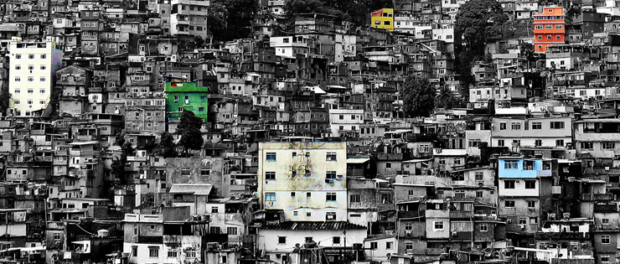
For the original article in Portuguese by Michel Silva published by Favela em Pauta click here.
The reason I got involved with journalism is noteworthy: I never felt represented by the way the mainstream media reports on favelas. Now I’ve had almost a decade of activity in community reporting, mainly in Rocinha. With the help of friends and family, we founded Viva Rocinha (inactive) and Fala Roça (active). And in 2018, together with Daiene Mendes and Thaís Cavalcante, I founded Favela em Pauta.
In Rocinha, there are about a dozen local media projects active on social networks. However, the dialogue between communicators is low. Other favelas in the city share a similar reality. More than dialogue, actions in partnership are few and far between. To me, this is influenced by ideological questions, personal initiatives or different editorial lines, if there are any. And that worries me.
We see favelas being bombarded with biased and badly researched news on a daily basis. In January, the Rio de Janeiro newspaper Meia Hora published a cover story in which drug traffickers were implied to have placed a children’s leisure area in the middle of the street in Nova Holanda, in Complexo da Maré. The photo used on the cover of the newspaper showed locals having fun in inflatable swimming pools.
To an ordinary reader, the newspaper story reveals a new fact. But for me, a favela resident, the facts presented don’t fit with the reality. So much so that I decided to investigate the Meia Hora cover and discovered there was no police investigation going on, and that the Civil Police officers only learned of the case through the press. Come on. Evident fake news splashed on the cover of one of the largest newspapers targeting [lower income] classes C and D.
This is what I want to get at. We, favela communicators, need to unite on behalf of our communities. What we create is worth more than social media likes. Although Rio’s favelas have different characteristics, the struggles are practically the same. Like basic sanitation. Public schools. The social interventions that the federal government had promised to implement in favelas under the National Security Plan.
Now with the federal intervention in Rio’s State Secretariat of Public Security, our bodies are on the line. I have not read anything in Rio’s newspapers about what we most want: social intervention. It is always the same narrative, that favelas need military intervention.
We must stop the habit of just telling each other, ‘Let’s unite to do something together,’ because this always remains aspirational. It takes action, proactivity, and implementation. Communicators from Maré need to go through the Rebouças Tunnel and exchange ideas with Rocinha’s communicators. Rocinha’s communicators need to jump on the subway and catch up with the Mangueira crew. The mission is to go across the city and co-create. Being alone in our territory will not have the social impact that we want.
No one knows our favelas better than we do. Favela journalism is a powerful communication tool that frightens the mainstream press. They are afraid of what we can produce and publish. The space in Favela em Pauta is open to favela residents who wish to publish opinion articles or reports about the favela where they live.
In 2018, I request more unity, please.
